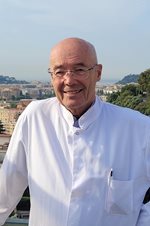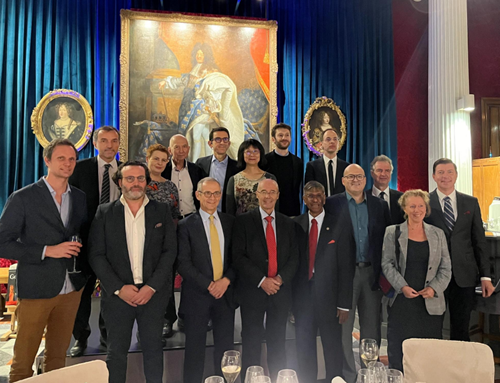Rectal preservation strategy for cancer of the distal or middle rectum
Report on the LUCARRE congress
25 November 2023, Nice, France
Endorsed by ESTRO
The one day congress of Lacassagne Université Côte d’Azur on randomisation and rectal preservation (LUCARRE) was held in Nice on 25 November, 2023. This congress was dedicated to the topic of rectal preservation strategies for cancer of the distal or middle rectum. The oral presentations were limited to those that covered randomised trials with organ preservation (OP) as a main end-point, in order to concentrate on evidence-based medicine.
.PNG.aspx?width=400&height=227)
Legend: Active discussion with the participants
.PNG.aspx?width=400&height=212)
Legend: 15 different countries were represented
To optimise the chance of OP, four different approaches were presented: total neo-adjuvant treatment, radiation dose escalation through the use of external beam radiation therapy, local excision after neo-adjuvant treatment, and intra-cavitary radiation boost combined with chemoradiotherapy. It is difficult to compare these trials because they employ different inclusion criteria and treatment techniques, but the general idea is that in selected groups of tumours and patients, OP is possible in stages II-III rectal cancer with preservation of good bowel function and without adverse impact on survival periods. Depending on the selection, OP can be achieved in 50-80% of cases, and this approach is becoming standard in expert centres. A total of 15 different countries (America-Europe) were represented and it is expected that a similar congress will be held in America and Europe on an annual basis to update interested parties there on the data of the ongoing trials and to initiate new trials that will use the recent published results.

Professor Jean Pierre GERARD
Centre Antoine Lacassagne
Nice, France

Legend: LUCARRE faculty
A gala dinner was offered by Prof. Gerard in Hotel Negresco to celebrate the end of his 50 years of clinical activity in rectal cancer but not the end of his involvement in intra-cavitary contact X-ray brachytherapy.